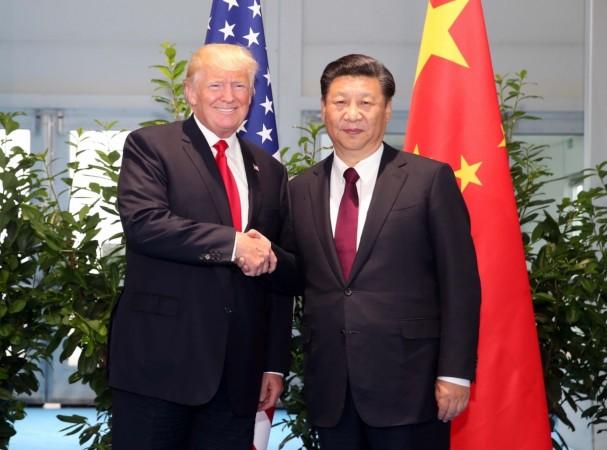
In a positive gesture, China said on Friday that it will waive import tariffs for some soybeans and pork shipments from the United States, as the two sides try to thrash out a broader agreement to defuse their protracted trade war.
The tariff waivers were based on applications by individual firms for US soybeans and pork imports, the finance ministry said in a statement, citing a decision by the country's cabinet. It did not specify the quantities involved.
China had imposed the levies in response to tariffs launched by Washington over allegations that China steals and forces the transfer of American intellectual property to Chinese firms, known as Section 301. That includes tariffs of 25 percent on both US soybeans and pork in July 2018 and a further 10 percent on pork and 5 percent on soybeans in September this year.
The waiver comes amid negotiations between the United States and China to conclude a 'phase one' or interim deal to de-escalate a 17-month trade war that has roiled financial markets, disrupted supply chains and weighed on global economic growth.
A deal had initially been expected last month, but the two sides are said to be still seeking agreement on major issues such as which tariffs to roll back and the size of US farm purchases China is willing to make.
Though President Donald Trump struck an upbeat tone on progress in talks on Thursday, a new round of US tariffs covering about $156 billion of Chinese imports is set to kick in just over a week away on December 15.
China's tariff waivers on key US agricultural products is a sign of its commitment to the deal, said an industry source who declined to be identified because of the sensitivity of the matter.

"The goal (of this move) is to expand purchases and reassure the United States," said a Chinese source who advises Beijing on the trade talks.
"It should be interpreted as a positive signal. Despite the many political difficulties the two sides face, economic and trade cooperation and moves to stop the escalation of the trade war are in the interest of both parties."
Since late 2018, Washington has similarly exempted some Chinese goods from US tariffs, even as the tone of the trade talks waxed and waned.
At end-October, the Office of the US Trade Representative (USTR) began accepting tariff exclusion requests for Chinese goods subject to additional taxes in effect since September 1.
Prior to that, 14 batches of exclusions for Chinese products had been granted between December 2018 and mid-October this year.
Washington imposed additional tariffs on about $125 billion worth of Chinese goods on September 1, on top of 25 percent tariffs levied on an earlier $250 billion list of industrial and consumer goods.
US SOYBEANS
Beijing's levies on US soybeans initially brought its purchases of the US' most valuable farm export to a virtual halt, although it has offered waivers to buyers in recent months.
The Chinese government never made the details of these waivers public, however, as well as how to implement such waivers.
Those waivers are said to have expired, although new exemptions may come too late, said an analyst.
"December arrivals are already pretty high and then we're getting into the Brazil crop," said Darin Friedrichs, senior Asia commodity analyst at INTL FC Stone.
"There's limited space to buy new US soybeans at this point."
Exemptions for pork are likely to be in higher demand, with less than two months until China's Lunar New Year holiday, the country's peak consumption period.

China has been scouring the world for more meat to fill a big shortage of protein after an outbreak of African swine fever devastated its massive hog herd, cutting supplies of pork.
US pork exports to China and Hong Kong are already up 47 percent in volume terms from January to September, even with high duties in place.
A second adviser to the Chinese government said exemptions on the products suited Beijing, as they helped meet market demand for such goods while reducing the trade surplus with the United States.
"We might as well buy soybeans from the US rather than from Brazil. Brazil is actually selling us what was purchased from the United States and they even hiked the prices up before selling to us. In that case, we'd better just buy from the United States," she said.

















